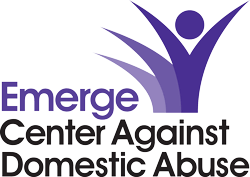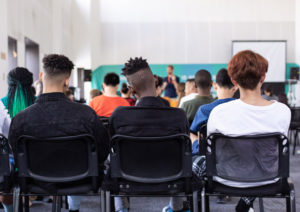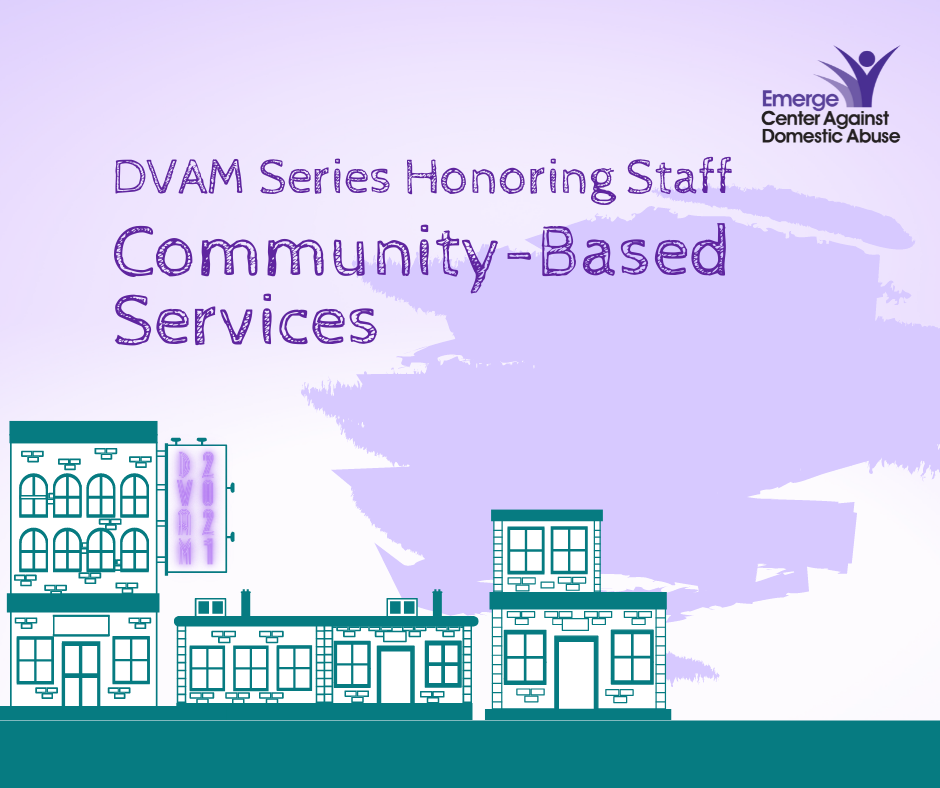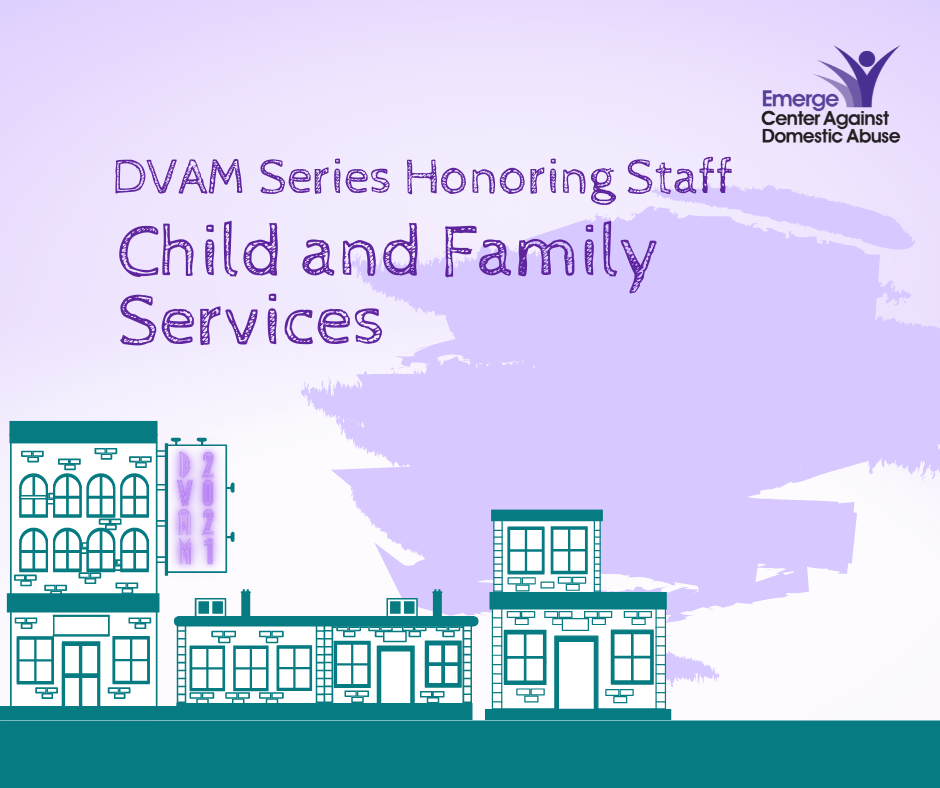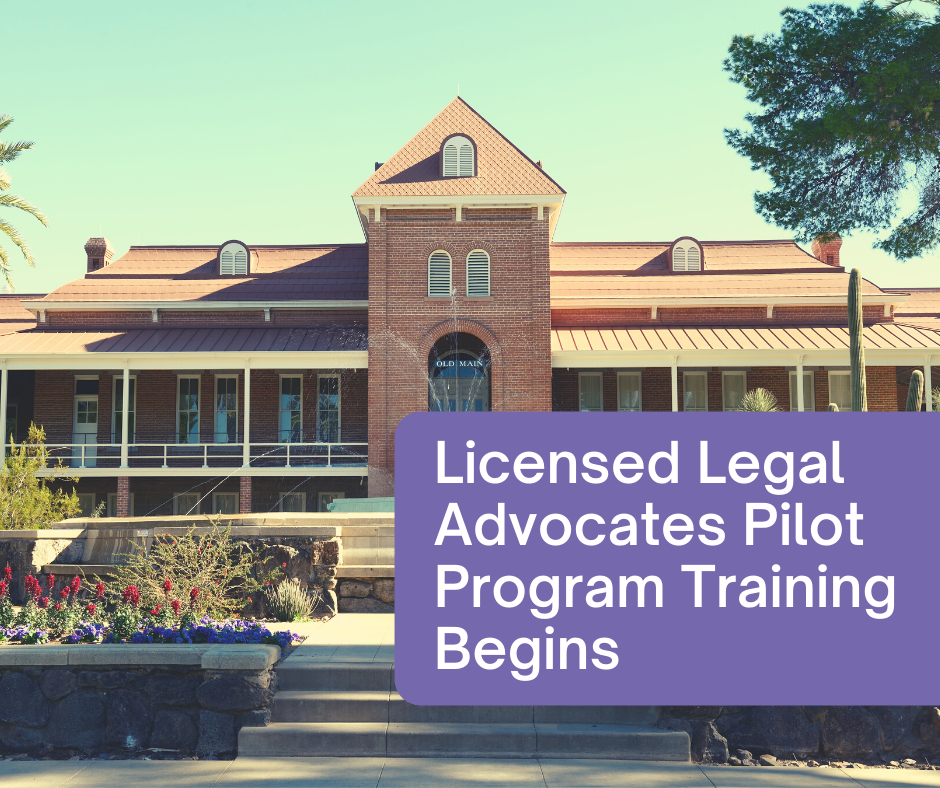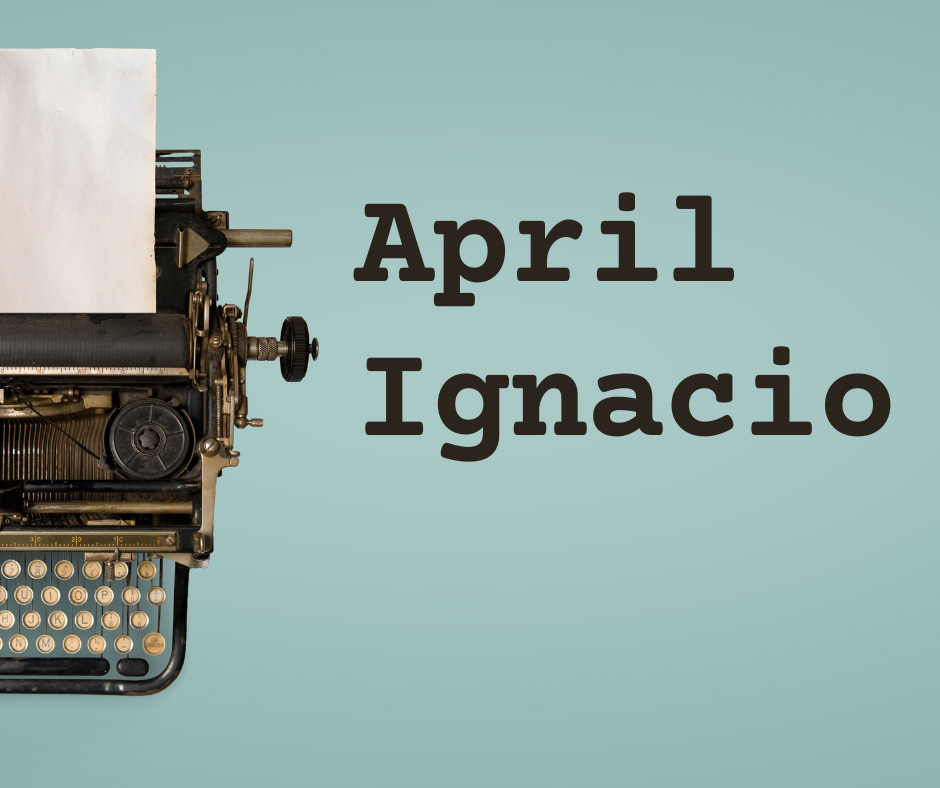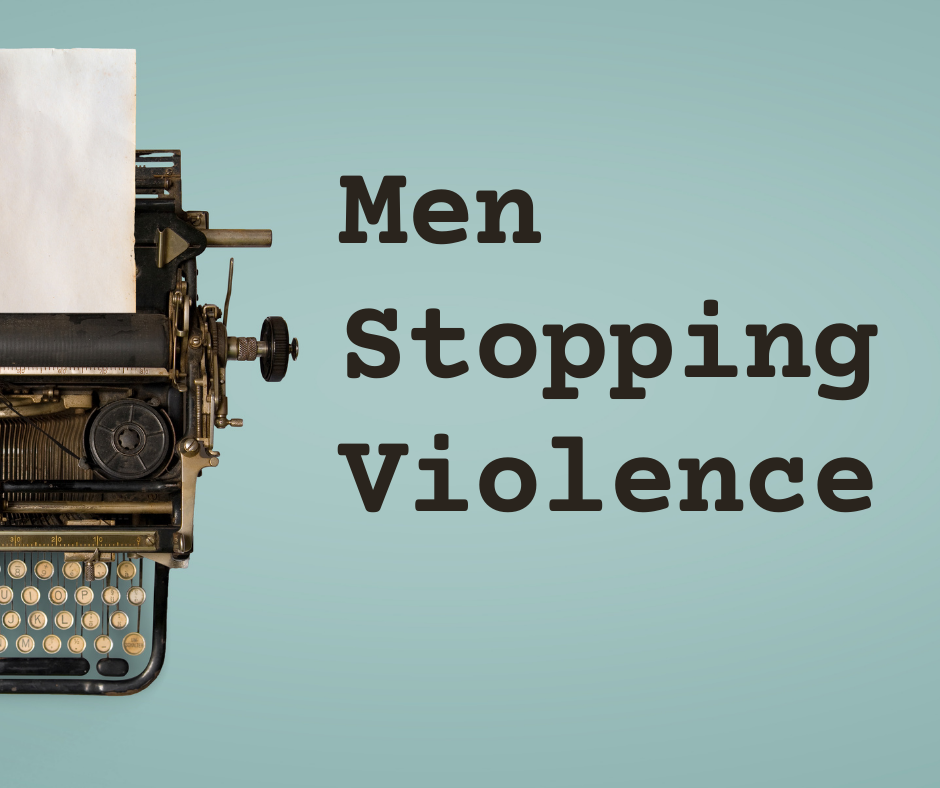bell hooks said, “But love is really more of an interactive process. It’s about what we do, not just what we feel. It’s a verb, not a noun.”
As Domestic Violence Awareness Month begins, I reflect with gratitude on the love we were able to put into action for survivors of domestic violence and for our community during the pandemic. This difficult period has been my greatest teacher about actions of love. I witnessed our love for our community through our commitment to ensuring that services and support remained available for individuals and families experiencing domestic violence.
It is not a secret that Emerge is made up of members of this community, many of whom have had their own experiences with hurt and trauma, who show up every day and offer their heart to survivors. This is undoubtedly true for the team of staff who deliver services across the organization—emergency shelter, hotline, family services, community-based services, housing services, and our men’s education program. It is also true for everyone who supports the direct service work to survivors through our environmental services, development, and administrative teams. It is especially true in the ways we all lived in, coped with, and did our best to help participants through the pandemic.
Seemingly overnight, we were catapulted into a context of uncertainty, confusion, panic, grief and a lack of guidance. We sifted through all of the information that inundated our community and created policies that tried to prioritize the health and safety of the nearly 6000 people we serve every year. To be sure, we are not healthcare providers tasked to care for those who are sick. Yet we serve families and individuals who are at risk every day of serious harm and in some cases death.
With the pandemic, that risk only increased. Systems that survivors rely on for help shut down around us: basic support services, courts, law enforcement responses. As a result, many of the most vulnerable members of our community disappeared into the shadows. While most of the community was at home, so many folks were living in unsafe situations where they did not have what they needed to survive. The lockdown decreased the ability for people experiencing domestic abuse to receive support by phone because they were in the home with their abusive partner. Children didn’t have access to a school system to have a safe person to talk to. Tucson shelters had decreased capacity to bring individuals in. We saw the impacts of these forms of isolation, including increased need for services and higher levels of lethality.
Emerge was reeling from the impact and trying to maintain contact safely with folks living in dangerous relationships. We moved our emergency shelter overnight into a non-communal facility. Still, employees and participants reported having been exposed to COVID on a seemingly daily basis, resulting in contact tracing, reduced staffing levels with many vacant positions, and staff in quarantine. In the midst of these challenges, one thing remained intact—our love for our community and deep commitment to those who are seeking safety. Love is an action.
As the world seemed to stop, the nation and community breathed in the reality of the racialized violence that has been occurring for generations. This violence exists in our community, too, and has shaped the experiences of our team and the people we serve. Our organization attempted to figure out how to cope with the pandemic while also creating space and beginning healing work from the collective experience of racialized violence. We continue to work toward liberation from the racism that exists all around us. Love is an action.
The heart of the organization kept beating. We took agency phones and plugged them in at people’s homes so that the hotline would continue to operate. Staff immediately began hosting support sessions from home telephonically and on Zoom. Staff facilitated support groups on Zoom. Many staff continued to be in the office and have been for the duration and continuation of the pandemic. Staff picked up extra shifts, worked longer hours, and have been holding multiple positions. Folks came in and out. Some got sick. Some lost close family members. We have collectively continued to show up and offer our heart to this community. Love is an action.
At one point, the entire team providing emergency services had to quarantine due to potential exposure to COVID. Teams from other areas of the agency (administrative positions, grant writers, fundraisers) signed up to deliver food to families living at the emergency shelter. Staff from across the agency brought toilet paper when they found it available in the community. We arranged pick-up times for folks to come to the offices that were shut down so that folks could pick up food boxes and hygiene items. Love is an action.
One year later, everyone is tired, burned out, and hurting. Still, our hearts beat and we show up to provide love and support to survivors who have nowhere else to turn. Love is an action.
This year during Domestic Violence Awareness Month, we are choosing to lift up and honor the stories of the many employees of Emerge who helped this organization stay in operation so that survivors had a place where support could happen. We honor them, their stories of pain during illness and loss, their fear of what was to come in our community—and we express our endless gratitude for their beautiful hearts.
Let us remind ourselves this year, during this month, that love is an action. Every day of the year, love is an action.
